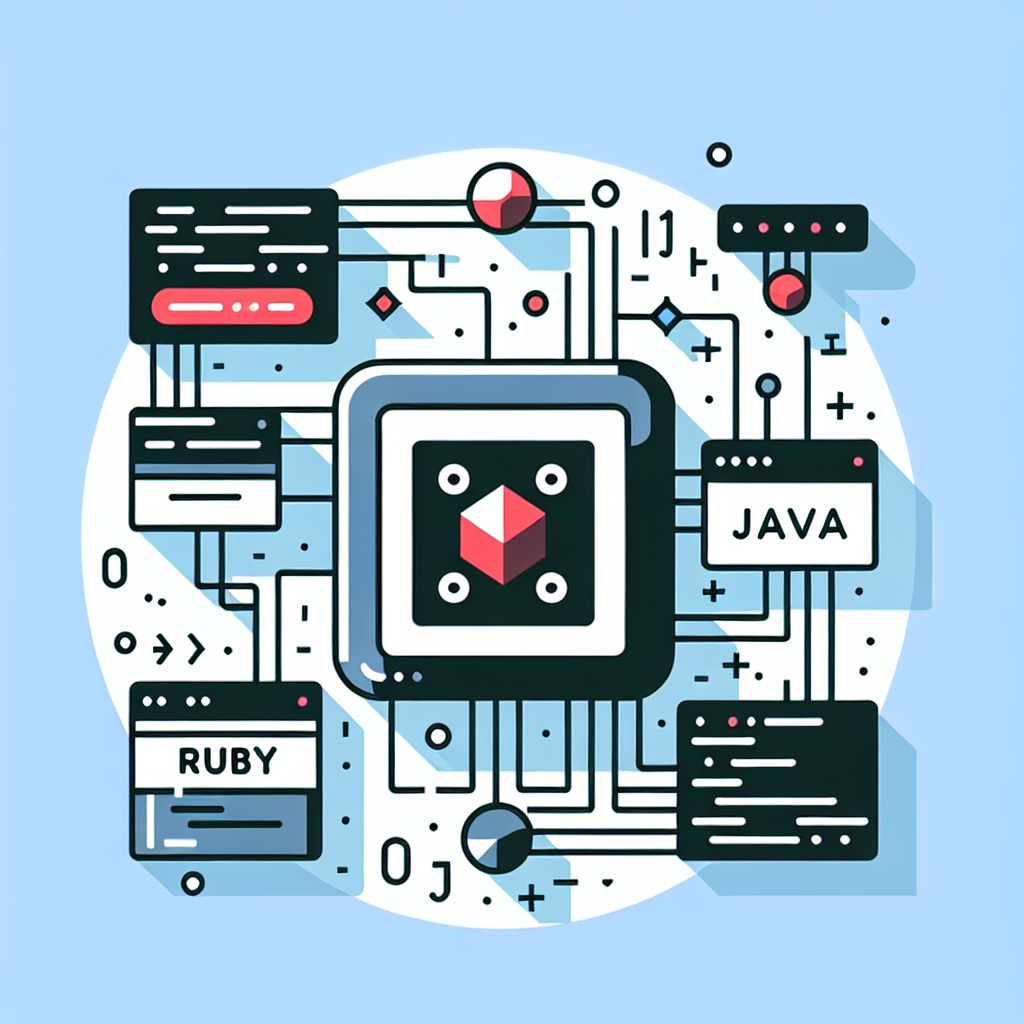Convert Ruby to Java: Seamless Code Transformation Tool
Effortlessly convert Ruby code to Java with our intuitive tool. Simplify your workflow and boost productivity. Try it now for seamless Ruby to Java transitions!
Source Code
Converted Code
Output will appear here...
The Ruby to Java conversion tool effortlessly transforms Ruby code into Java, enabling seamless integration and enhanced performance in Java-based environments. Ideal for developers migrating applications or optimizing performance, this tool ensures accurate syntax translation while preserving functionality. Enhance your development workflow with this efficient, time-saving solution.

Ruby to Java Conversion Tool Link to this section #
Transforming code from Ruby to Java can be challenging, yet our Ruby to Java conversion tool simplifies this process efficiently. It is designed to help developers seamlessly transition code between these two popular programming languages by providing accurate syntax translations and valuable insights.
Key Features Link to this section #
Automated Syntax Conversion: Convert Ruby scripts into Java code with precision. This feature assists in handling the nuances between Ruby's dynamic nature and Java's static typing.
Code Optimization Suggestions: Receive suggestions for optimizing the converted Java code, ensuring it adheres to best practices and performance standards.
Interactive Interface: A user-friendly interface that allows you to input Ruby code and immediately see the Java equivalent in a side-by-side view.
Ruby to Java Code Translation Link to this section #
Example: Ruby Code
# Ruby code to print 'Hello, World!'
def greet
puts 'Hello, World!'
end
greet
Converted Java Code
// Java code to print 'Hello, World!'
public class HelloWorld {
public static void greet() {
System.out.println("Hello, World!");
}
public static void main(String[] args) {
greet();
}
}
Benefits of Using This Tool Link to this section #
- Time Efficiency: Save time on manual code translation and reduce the risk of human error.
- Enhanced Learning: Understand the key differences and similarities between Ruby and Java through practical examples and tooltips.
- Scalable Solutions: Ideal for projects requiring language migration without rewriting from scratch.
Additional Resources Link to this section #
For more in-depth information on Ruby and Java language features, consider exploring:
Our tool streamlines the transition process, making it easier than ever to convert and understand Ruby and Java code. Explore new possibilities today with our Ruby to Java conversion tool!
Frequently Asked Questions
What are the main differences between Ruby and Java?
Ruby is a dynamic, interpreted language known for its simplicity and productivity, often used in web development with frameworks like Ruby on Rails. Java is a statically typed, compiled language that is platform-independent and widely used for building large-scale enterprise applications. Java emphasizes performance and scalability, while Ruby focuses on developer happiness and ease of use.
How can I transition from Ruby to Java programming?
Transitioning from Ruby to Java involves understanding Java's syntax, object-oriented principles, and its ecosystem. Start by familiarizing yourself with Java syntax and concepts like classes, interfaces, and inheritance. Practice by building small Java projects, and explore Java frameworks such as Spring or Hibernate. Additionally, take advantage of Java's extensive documentation and community resources.
Which language should I choose for web development, Ruby or Java?
The choice between Ruby and Java for web development depends on your project requirements. Ruby, with Ruby on Rails, is ideal for startups and projects that require rapid development and iteration. It offers simplicity and a rich set of libraries. Java, on the other hand, is suitable for large-scale applications that need robustness, scalability, and extensive backend integration. It's commonly used in enterprise environments.